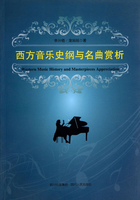On the ninth of November the Houses met. The Commons were summoned to the bar of the Lords; and the King spoke from the throne. His speech had been composed by himself. He congratulated his loving subjects on the suppression of the rebellion in the West: but he added that the speed with which that rebellion had risen to a formidable height, and the length of time during which it had continued to rage, must convince all men how little dependence could be placed on the militia. He had, therefore, made additions to the regular army. The charge of that army would henceforth be more than double of what it had been; and he trusted that the Commons would grant him the means of defraying the increased expense. He then informed his hearers that he had employed some officers who had not taken the test; but he knew them to be fit for public trust. He feared that artful men might avail themselves of this irregularity to disturb the harmony which existed between himself and his Parliament. But he would speak out. He was determined not to part with servants on whose fidelity he could rely, and whose help he might perhaps soon need.15This explicit declaration that he had broken the laws which were regarded by the nation as the chief safeguards of the established religion, and that he was resolved to persist in breaking those laws, was not likely to soothe the excited feelings of his subjects. The Lords, seldom disposed to take the lead in opposition to a government, consented to vote him formal thanks for what he had said. But the Commons were in a less complying mood. When they had returned to their own House there was a long silence; and the faces of many of the most respectable members expressed deep concern. At length Middleton rose and moved the House to go instantly into committee on the King's speech: but Sir Edmund Jennings, a zealous Tory from Yorkshire, who was supposed to speak the sentiments of Danby, protested against this course, and demanded time for consideration. Sir Thomas Clarges, maternal uncle of the Duke of Albemarle, and long distinguished in Parliament as a man of business and a viligant steward of the public money, took the same side. The feeling of the House could not be mistaken. Sir John Ernley, Chancellor of the Exchequer, insisted that the delay should not exceed forty-eight hours; but he was overruled; and it was resolved that the discussion should be postponed for three days.16The interval was well employed by those who took the lead against the court. They had indeed no light work to perform. In three days a country party was to be organized. The difficulty of the task is in our age not easily to be appreciated; for in our age all the nation may be said to assist at every deliberation of the Lords and Commons. What is said by the leaders of the ministry and of the opposition after midnight is read by the whole metropolis at dawn, by the inhabitants of Northumberland and Cornwall in the afternoon, and in Ireland and the Highlands of Scotland on the morrow. In our age, therefore, the stages of legislation, the rules of debate, the tactics of faction, the opinions, temper, and style of every active member of either House, are familiar to hundreds of thousands. Every man who now enters Parliament possesses what, in the seventeenth century, would have been called a great stock of parliamentary knowledge. Such knowledge was then to be obtained only by actual parliamentary service. The difference between an old and a new member was as great as the difference between a veteran soldier and a recruit just taken from the plough; and James's Parliament contained a most unusual proportion of new members, who had brought from their country seats to Westminster no political knowledge and many violent prejudices. These gentlemen hated the Papists, but hated the Whigs not less intensely, and regarded the King with superstitious veneration. To form an opposition out of such materials was a feat which required the most skilful and delicate management. Some men of great weight, however, undertook the work, and performed it with success. Several experienced Whig politicians, who had not seats in that Parliament, gave useful advice and information. On the day preceding that which had been fixed for the debate, many meetings were held at which the leaders instructed the novices; and it soon appeared that these exertions had not been thrown away.17The foreign embassies were all in a ferment. It was well understood that a few days would now decide the great question, whether the King of England was or was not to be the vassal of the King of France. The ministers of the House of Austria were most anxious that James should give satisfaction to his Parliament. Innocent had sent to London two persons charged to inculcate moderation, both by admonition and by example. One of them was John Leyburn, an English Dominican, who had been secretary to Cardinal Howard, and who, with some learning and a rich vein of natural humour, was the most cautious, dexterous, and taciturn of men. He had recently been consecrated Bishop of Adrumetum, and named Vicar Apostolic in Great Britain. Ferdinand, Count of Adda, an Italian of no eminent abilities, but of mild temper and courtly manners, had been appointed Nuncio. These functionaries were eagerly welcomed by James. No Roman Catholic Bishop had exercised spiritual functions in the island during more than half a century. No Nuncio had been received here during the hundred and twenty-seven years which had elapsed since the death of Mary. Leyburn was lodged in Whitehall, and received a pension of a thousand pounds a year. Adda did not yet assume a public character. He passed for a foreigner of rank whom curiosity had brought to London, appeared daily at court, and was treated with high consideration. Both the Papal emissaries did their best to diminish, as much as possible, the odium inseparable from the offices which they filled, and to restrain the rash zeal of James. The Nuncio, in particular, declared that nothing could be more injurious to the interests of the Church of Rome than a rupture between the King and the Parliament.18Barillon was active on the other side. The instructions which he received from Versailles on this occasion well deserve to be studied; for they furnish a key to the policy systematically pursued by his master towards England during the twenty years which preceded our revolution. The advices from Madrid, Lewis wrote, were alarming. Strong hopes were entertained there that James would ally himself closely with the House of Austria, as soon as he should be assured that his Parliament would give him no trouble. In these circumstances, it was evidently the interest of France that the Parliament should prove refractory. Barillon was therefore directed to act, with all possible precautions against detection, the part of a makebate. At court he was to omit no opportunity of stimulating the religious zeal and the kingly pride of James; but at the same time it might be desirable to have some secret communication with the malecontents. Such communication would indeed be hazardous and would require the utmost adroitness; yet it might perhaps be in the power of the Ambassador, without committing himself or his government, to animate the zeal of the opposition for the laws and liberties of England, and to let it be understood that those laws and liberties were not regarded by his master with an unfriendly eye.19Lewis, when he dictated these instructions, did not foresee how speedily and how completely his uneasiness would be removed by the obstinacy and stupidity of James. On the twelfth of November the House of Commons, resolved itself into a committee on the royal speech. The Solicitor General Heneage Finch, was in the chair. The debate was conducted by the chiefs of the new country party with rare tact and address. No expression indicating disrespect to the Sovereign or sympathy for rebels was suffered to escape. The western insurrection was always mentioned with abhorrence. Nothing was said of the barbarities of Kirke and Jeffreys. It was admitted that the heavy expenditure which had been occasioned by the late troubles justified the King in asking some further supply: but strong objections were made to the augmentation of the army and to the infraction of the Test Act.
同类推荐
热门推荐
恶魔要黑化别靠近
不观过去,不惧未来,一身红衣潋滟,惊凡尘一双血眸邪肆,破天下一瞬洁白微笑,摄心魄一句一场游戏,搅风云世人皆知你,却无人懂你世人皆惧你,却无人解你只做那裁决之人步步为营却让他人甘愿奉上生命……————一双惊世之眸,当它再次重现于世之时,风云翻涌,又将开启一场怎样的战争?红衣潋艳,挥袖间,天下格局以变,她不是她,死亡即是的新生——当…已发生改变“阿羽!”“……”她敢说从未向天要过什么!世人都说她阴狠毒辣,冷血无情。她想要的只有那一点点……他们都说她嗜杀成性,那就做一个嗜杀成性的人给他们瞧瞧,让他们恐惧让他们害怕。当琴音缭绕之时,她留手了。她对他冷漠却又……而那时的他却不知冷漠是恨。而那温柔却是因为割不断的……【女扮男装】不喜勿入,不喜勿喷!谢谢!向前进:一个青春时代的奋斗史
这是一个关于理想、奋斗和成长的故事。“傻根”“阿炳”“许三多”,谁才是真正的王宝强?一个农村孩子八岁时的梦想,在十六年后变成了现实。这不是传奇,为了这个梦想,他在少林寺学艺六年。为了这个梦想,他在北影厂的门口蹲候三年,只为有一个说台词的角色。为了这个梦想,他在工地上搬砖、运沙,挥汗如雨。为了这个梦想,他和所有一样有梦想的年青人一样,离开家乡,走在奋斗、成长的路上。他用十六年,完成了这个青春时代的奋斗史。他用不抛充不放弃的精神制造了一个喧器时代的梦。每个梦想皆能成真。王宝强独家陈述关于命运,关于机缘,关于成长,关于情感,关于亲情的全方位思考。















